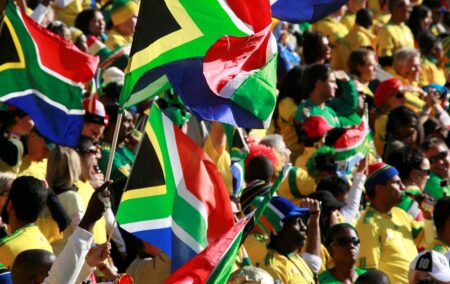When a policy fails, it is common for people to say it is not the policy itself that is to blame, only its implementation. This is ridiculous.
Only poor policymakers create policies without considering all the relevant factors, chief among which is reckoning with the flaws of its would-be implementers. This is why policies that contemplate a reduced government role are preferable. Restrictions on ordinary individuals and firms should rather be lessened so that they are empowered to solve their own problems.
South Africans belonging to parties with seemingly opposite objectives and interests have a curious fetish for racial policies, despite their repeated failure over decades.
The current political elite and their intellectuals regularly laud the noble intentions of BEE and suggest tweaks here and there, some of which are accepted by the government. Nevertheless, no matter how much they try, the unemployment rate increases, investment flees, and we are all worse off for it.
Yet these same people suggest that it is the opponents of these policies who are irrational. Non-racialists are laughed at if they dare suggest that the government should rather focus its efforts on solving poverty and the restitution of property stolen by the previous racist regime. They are accused of cold ‘colour blindness’ even as they lay out proposals that have as their chief aim, and measure of success, the eradication of poverty afflicting black people.
Being colour blind is better than being colour-mad. Colour madness leads to trying the same failed policies over and again, expecting different results. Colour madness means accepting diminishing levels of service for black South Africans that comes with jettisoning merit for ‘empowerment’. Colour madness means giving up some of your best and brightest to countries that hardly need these people, all because they have the wrong skin colour.
It is no surprise that the black elites would defend this policy. It guarantees their access to resources without their having to be good at or qualified to do what is expected of them. Similarly, it is convenient for them to argue for racial employment equity laws when they are part of the select group competing for middle-class jobs. Who cares if this inefficient allocation of resources leads to higher prices for the poor?
This sentiment comes from people who often invoke ‘black excellence’ whilst at the same time claiming to hate racism. In reality, the best of these elites have a deep-seated fear that black people simply cannot compete with white people. Many of them have this fear because they are themselves mediocre. Without South Africa’s racial laws to use as a shield, these people would likely go nowhere in life.
The interesting thing about these racial laws is that while they embrace mediocre black people – as apartheid race laws embraced mediocre whites – the same laws mean that the qualified black people who can do the job or who can run companies are overlooked. The black people who can compete against anyone in the world are ignored because, like all competent people, they do not seek success through the cultivation of relationships with political leaders, but through standing on their own two feet. When you know that you can do your job, you will also tend to see it as an insult when someone appoints you on the basis of your race.
Perhaps the real divide is between competent people of all races who want a meritocracy, and the mediocre, who want handouts; the mediocre of all races versus those who are confident in themselves and competent at what they do. This brings me to my next point.
It is also no surprise that white elites defend these racial policies. Perhaps they feel a sense of guilt, because they know, deep down, that they did not deserve their own success. They cannot fathom anyone succeeding without preferential treatment by the state. They also regard themselves as ‘pragmatists’. They believe that if they just accept BEE, they can stop the government from doing other bad things to them and the economy.
This is an immoral position. An unholy alliance between black and white elites exists to support a policy that is designed to be less efficient than the free market. This means poor black people are thrown under the bus to make our mediocre elites feel better about themselves. The poor have to pay more for goods and services and spend more time and effort making ends meet than they would otherwise have done in a free market.
These politically induced inefficiencies come with serious costs. The poor now have less time to spend on the productive activities that could get them out of poverty. They have less disposable income, because incompetent comrades are not only imposing costs on them through their inefficiency, but are also corrupt and, as they did not work for any of what they consume, see no reason to conserve it.
South Africa has always had racial policies, and we all wonder why such a resource-rich and beautiful country should witness endless conflicts over those resources. It is our original and ongoing sin. Some have even convinced themselves that to be anti-racist means being racialist. All par for the course in beautiful South Africa – but all the while, our children go to bed hungry.

